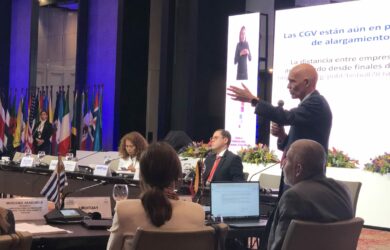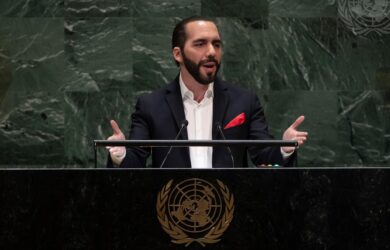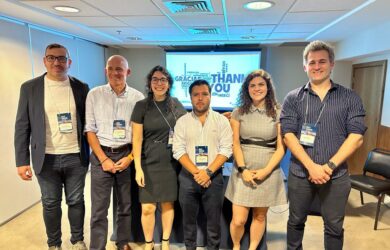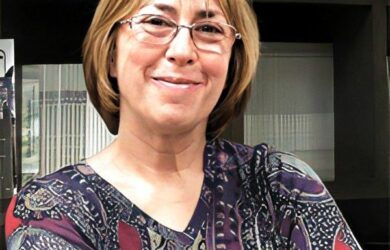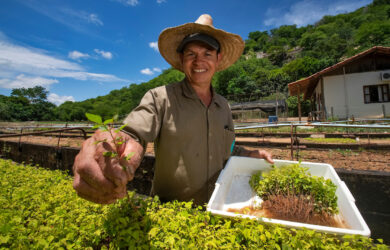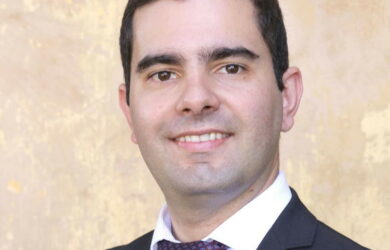- ABOUT US
- RESEARCH
- EDUCATION
- The Graduate School
- PhD Programme
- MSc Programmes
- Capacity Development
- News
- Design and Evaluation of Public Policies (DEPP)
- Design and Evaluation of Innovation Policies (DEIP)
- Evidence-Based Policy Research Methods (EPRM)
- Migration Management Diploma Programme (MMDP)
- Moving the Migration Policy Agenda Forward (MMPAF)
- Online Courses
- Short Courses (Masters)
- Tailor-made programmes
- UNU-MERIT, ITU Academy Training Centre
- Alumni
- Academic Funding
- NEWS
- EVENTS
- PUBLICATIONS
- LIBRARY
How macro-finance could help mitigate climate change in Latin America and the Caribbean
17 May 2024
A guest post by Rodrigo Valdés, Director of the Western Hemisphere Department of the International Monetary Fund and guest speaker at our upcoming UNESCO Chair webinar Countries in Latin America and the Caribbean (LAC) face multiple and diverse challenges related to climate change, given the urgent need to reduce greenhouse gas (GHG) emissions, build resilience to climate shocks and reduce reliance on fossil fuel exports. We are already seeing climate change hit households, businesses and commun...
Continue Reading →Latin America’s economic growth potential: Carlo Pietrobelli’s keynote insights at ECLAC event
24 April 2024
Earlier this month, Carlo Pietrobelli (Professorial Fellow at UNU-MERIT and holder of our UNESCO Chair on Science, Technology and Innovation for Sustainable Development for Latin America) gave a keynote speech at the Fourth Meeting of the Conference on Science, Innovation and Information and Communications Technologies. The Conference is a subsidiary body of the United Nations Economic Commission for Latin America and the Caribbean (ECLAC); it serves as a permanent forum for policy and technical...
Continue Reading →Summer of Science Program: Supporting young Indigenous female researchers to flourish
07 February 2024
Michelle González Amador – who is currently completing her full-time PhD at UNU-MERIT – has been involved with the multi-institutional initiative Mechanism Design for Social Good (MD4SG) for several years and was previously the organiser of the Latin America and Caribbean Working Group. One of the projects that emerged from this working group was a Summer of Science Program, the goal of which is to support female students from Indigenous communities in Mexico as they design and execu...
Continue Reading →El Salvador’s Bitcoin policy: Regret or reward?
21 August 2023
New investigative podcast by UNU-MERIT alumnus narrates the story of this contentious policy In 2021, El Salvador became the first country in the world to declare bitcoin as an official currency alongside the U.S. dollar. But almost two years after this law came into effect, the initiative remains a failure. Bitcoin has barely been adopted by the population and the country is nearly 30 percent down in its cryptocurrency investment. [1] So why did the Salvadoran government think its Bitcoi...
Continue Reading →Here’s what happened at the SASE 2023 conference
09 August 2023
Lessons from the three-day event in Rio de Janeiro By Mercedes Menéndez, Carlo Pietrobelli and Jorge Valverde From 20 to 22 July 2023, the Society for the Advancement of Socio-Economics (SASE) met for a three-day conference in Rio de Janeiro. There, the UNU-MERIT UNESCO Chair on Science, Technology and Innovation for Sustainable Development in Latin America organized a panel focused on the potential effects of the new techno-economic paradigm for Latin-American countries, entitled “The dual tran...
Continue Reading →Portrait of a Leader: Gabriela Dutrénit, UNU-MERIT
25 February 2022
A colleague, friend and trusted advisor to many of us across the institute, Prof. Gabriela Dutrénit has worked with UNU-MERIT for decades, as a lecturer on our DEIP innovation workshops, and as a member of our International Advisory Board. In this brief portrait, Howard Hudson interviews Prof. Dutrénit to find out more about the woman behind the titles. … Born in 1957 in Uruguay, Gabriela has been an activist, community coordinator and human rights defender for almost half a century. A leader of...
Continue Reading →Walking 4 SDGs: A virtual odyssey for climate action because we are all connected with nature
18 May 2021
Walking 4 SDGs UNU-MERIT staff and students travel virtually to Instituto Terra, Brazil, in support of SDG13 Enter keywords...
Continue Reading →‘This pandemic has shown us we have to think in integrated ways’: Remastered highlights from Alumni Week
23 October 2020
MPP alumnus Rodolpho Zannin Feijó joined the first online edition of the Maastricht University Alumni Week last month as a guest speaker from his home city of Curitiba in Brazil. During a lively conversation with current and prospective students, he shared his experience as head of the city’s International Affairs Office and looked back on his Master’s studies in Maastricht. Here are six highlights from the conversation. A double-degree from United Nations University and Maastricht University ha...
Continue Reading →Populism in Brazil: How liberalisation and austerity led to the rise of Lula and Bolsonaro
01 October 2020
While the rise of populist politicians in the Europe and the US gets a lot of attention from the media and researchers alike, the drivers of the populism taking hold in emerging and developing economies still receives relatively little scrutiny. In a new working paper we provide new evidence tracing the rise of populism in Brazil – through both the victory of presidents Luiz Inácio Lula da Silva in 2002 and Jair Bolsonaro in 2018 – to regional economic shocks caused by a process of trade liberal...
Continue Reading →PhD alumnus appointed Secretary of Transport in Colombian municipality
06 January 2020
We are delighted to announce that Dr. Carlos Cadena Gaitán, a graduate of our PhD programme, has been named Transport Secretary for the City of Medellín, Colombia. Dr. Cadena Gaitán is a well-known transport and environmental activist. He is co-founder of La Ciudad Verde (the Green City) initiative, project coordinator of the Low Carbon City Forum, and various other artistic and cultural organisations. In recognition of his work, he received the ‘Future Sustainability Leader’ award in Oslo in Ju...
Continue Reading →Archives
Contact
UNU-MERIT
Boschstraat 24
6211 AX Maastricht
The Netherlands
T: +31 43 388 44 00
Email: info@merit.unu.edu
Boschstraat 24
6211 AX Maastricht
The Netherlands
T: +31 43 388 44 00
Email: info@merit.unu.edu
Partner sites
Newsletters
© 2024 UNU-MERIT | Maastricht University



